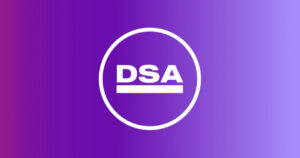Shark Tank’s Kevin O’Leary Invests $100,000 in Bitcoin Investment App
Photo by Jakob Owens on Unsplash
Shark Tank investor Kevin O’Leary led a $100,000 investment in a cryptocurrency application that converts spare change on credit card purchases to a user-selected cryptocurrency, reported CNBC on Oct. 23.
Converting Spare Change to Crypto
Called Bundil, the application was aired on a recent “Shark Tank” episode – a reality T.V. show which televises entrepreneur pitches for capital to a group of prominent investors. The show has seen a few crypto-products pitched in earlier seasons, with not many making the cut.
Bundil was launched by Dmitri Love earlier this year. The application allows customers to invest their spare change from credit card purchases in everyday transactions, such as coffee or groceries, and automatically buys four major cryptocurrencies – Bitcoin, Litecoin, Ethereum, and Bitcoin Cash.
Love sought $100,000 in exchange for 10 percent of this firm, which aims to allow the general public to invest small amounts in cryptocurrencies without the hassles of registering on a trading platform.
On air, Love revealed the inspiration for Bundil arose after his family expressed an intent to invest in the crypto market, asking an “easy way” for the investment process.
He remarked:
“I thought, anyone that’s trying to invest in cryptocurrency has to go through all these steps to try to figure out how to buy it. And I thought there could be an easier way for it to be done.”
O’Leary Leads Investment
While Love fumbled over his words during the telecast – which usually results in the “sharks” losing interest – O’Leary took a particular interest in his product, even joining the other investors to encourage Love’s pitch.
Most investors dropped out voicing various concerns. Mark Cuban – a Bitcoin evangelist – had invested in a very similar product; Lori Greiner was not interested in cryptocurrencies in general; Daymon John expressed his dislike of price volatility, and guest judge Matt Higgins opted out for comparable reasons.
Despite O’Leary’s interest, the billionaire offered the sought amount for 50 percent of equity, citing concerns about the longevity of mobile applications as a standalone business.



 CoinGlass
CoinGlass 






























































































